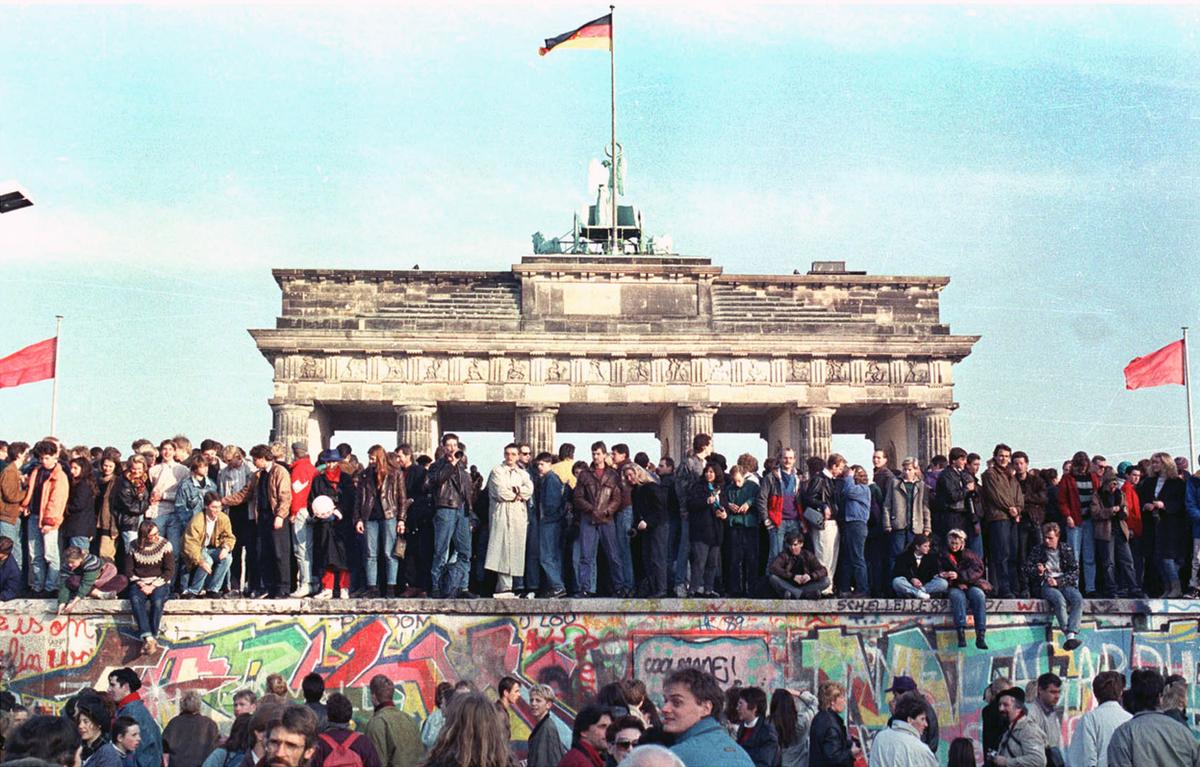My daughter and I slept in the bedroom used by the Duke of Edinburgh on a previous visit with the Queen and were guests at a NATO dinner. The dinner included politicians and people of influence. Some assumed we were also important until they found out better and then lost interest. The Residency's phone bill must have been astronomic that weekend as my daughter in her first year of uni kept her new boyfriend frequently updated on our goings-on.
Many of the museums were closed for renovation and the newer ones not yet completed. The most memorable site for me at that time was seeing Glienicka Bridge- a point of exchange during the Cold War for secret agents of both political systems who had been taken prisoner. I recently asked my daughter to recall her most prominent memory of that weekend. It was walking up the red carpet at the German premiere of the film 'Billy Elliot'- the story of a young boy from a mining town in the north-east of Britain who became a ballet dancer.. .
Fast forward 17 years. No British Residency for us. Our friends are now both retired. We stayed in an apartment in Mitte. The museums -new and renovated- are open for business and crowded with tourists. There are many more monuments to the atrocities committed in World War 11, the Holocaust and in the Cold War. You have to admire the Germans for their willingness to own the darker side of their history. By making some of these museums free millions of visitors bear witness to those dark days.
In the UK where are the museums or departments within museums or memorials that own the atrocities of the British Empire and enable us to bear witness to our history's shadow side? I can't think of any. My own father was a prisoner of war for two years in Stalag IV, near Dresden and never spoke of his experiences. My uncle was there at the liberation of Berlin in 1945.
What this most recent visit to Berlin did was remind me of the conditions that can lead to totalitarian states. When the Berlin Wall came down I have to admit to a degree of sadness as this was the beginning of the end of communism and an ideology that I was attracted to as a young person. My uncle had a photo of Stalin on his living room wall and as a child he told me it was my uncle Joe. It was only much later that I learnt of the atrocities of Stalin, the mass murders and oppression that took place in East Germany, the Baltic States and Russia from the 1950's until the fall of the Berlin Wall.
Visiting the East Side Gallery where murals painted on the remains of some of the original wall mark the 25th anniversary of its fall (1989-2014), I was uplifted by the artists' reminders of how much better life is today in Germany for the majority under the present system and where freedom of expression is taken for granted. But lest we forget they also remind us that threats to democracy are still there. Capitalism is also an ideology where workers' rights and our environmental interests are being marginalised by the interests of global business, where the media is owned by a few rich men, where 'the outsider' is scapegoated for our economic difficulties and policies, and where the question as to whether we can trust our governments to be transparent and honest is on-going. 

No comments:
Post a Comment